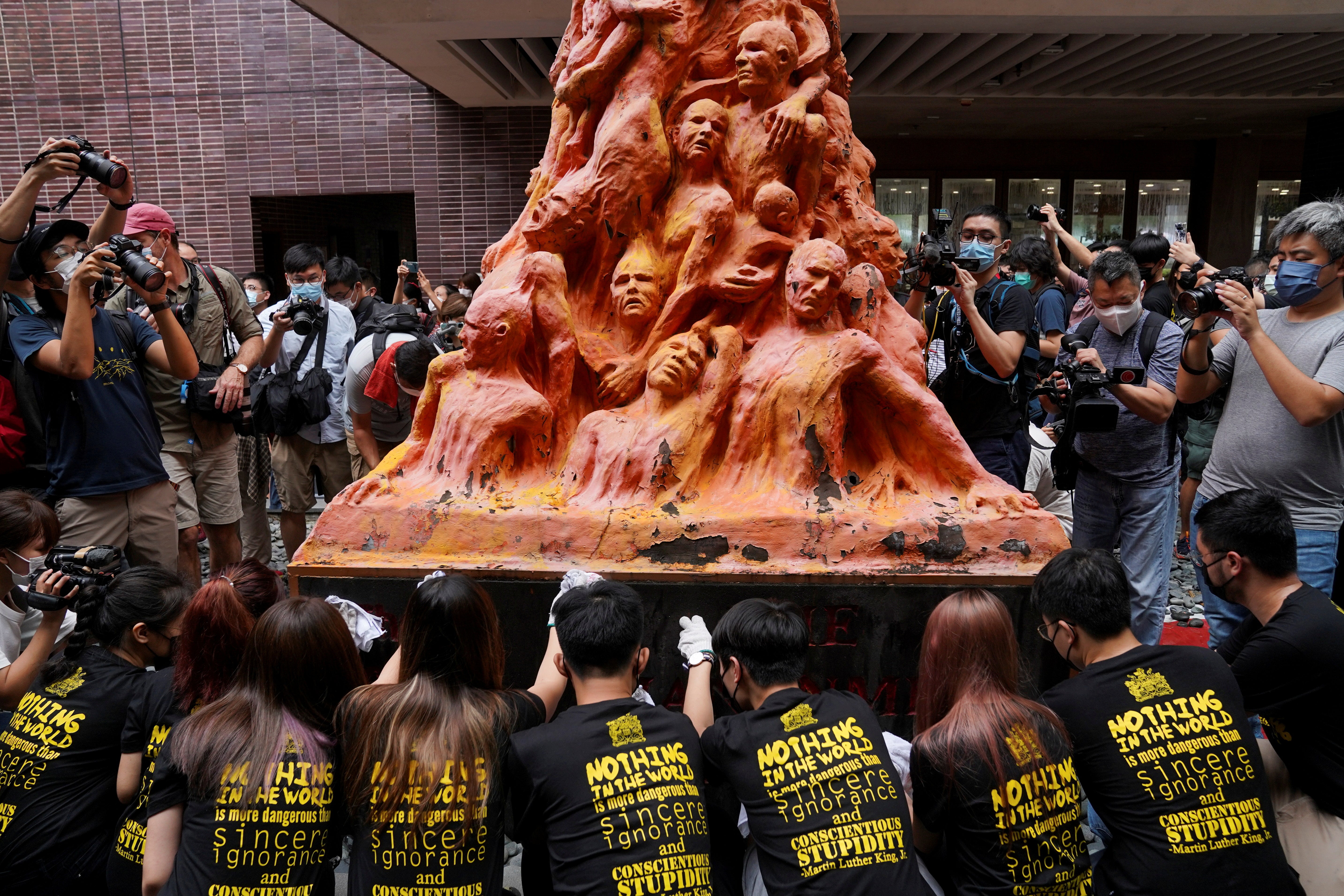Danish sculptor of Tiananmen statue asks Hong Kong for immunity from national security law
Galschiot wants immunity so he can travel to Hong Kong to take back the statue without being tried

Your support helps us to tell the story
From reproductive rights to climate change to Big Tech, The Independent is on the ground when the story is developing. Whether it's investigating the financials of Elon Musk's pro-Trump PAC or producing our latest documentary, 'The A Word', which shines a light on the American women fighting for reproductive rights, we know how important it is to parse out the facts from the messaging.
At such a critical moment in US history, we need reporters on the ground. Your donation allows us to keep sending journalists to speak to both sides of the story.
The Independent is trusted by Americans across the entire political spectrum. And unlike many other quality news outlets, we choose not to lock Americans out of our reporting and analysis with paywalls. We believe quality journalism should be available to everyone, paid for by those who can afford it.
Your support makes all the difference.The Danish sculptor of a statue that commemorates the protesters killed during China's Tiananmen Square crackdown in 1989 has sought immunity from the country’s draconian national security law.
Jens Galschiot has asked Hong Kong authorities for immunity so that he can travel there to take it back to Denmark.
Mr Galschiot had gifted the eight-metre-high, two-tonne copper sculpture called the “Pillar of Shame” to the civil society group Hong Kong Alliance in Support of Patriotic Democratic Movements of China in 1997.
The statue, which depicts torn, twisted and anguished bodies piled upon each other, has been on display at the University of Hong Kong for more than two decades.
The University of Hong Kong has ordered for the removal of the statue after the civil society group was disbanded by Beijing in September.
Mr Galschiot, in an open letter on Friday, said he was willing to take the statue back to his country, but his presence in Hong Kong was necessary for the complex operation. The statue is valued at around $1.4m (£1.04m).
“I can understand from the press that the introduction of the new security legislation in Hong Kong means that there is a legal basis for arresting foreign nationals who engage in activities that criticise China,” he wrote.
He added that the statue’s removal “will lead to activities and media coverage that could be perceived as criticism of China. Therefore, I will have to get a guarantee that my employees and I will not be prosecuted.”
In 2020, Beijing implemented the controversial national security law in a sweeping crackdown against dissent in the country. Critics have accused the Communist government of using the law to silence rights and pro-democracy activists in the wake of the 2019 Hong Kong protests.
Under the law, crimes of secession, subversion, terrorism and collusion with foreign forces are punishable by a maximum sentence of life imprisonment.
More than 120 people, including opposition leaders and journalists, have been arrested under the law since June 2020.
Earlier in September, four leaders of the pro-democracy alliance, that organised the annual Tiananmen Square commemorations in Hong Kong, were arrested and accused of being “foreign agents”.
Join our commenting forum
Join thought-provoking conversations, follow other Independent readers and see their replies
Comments